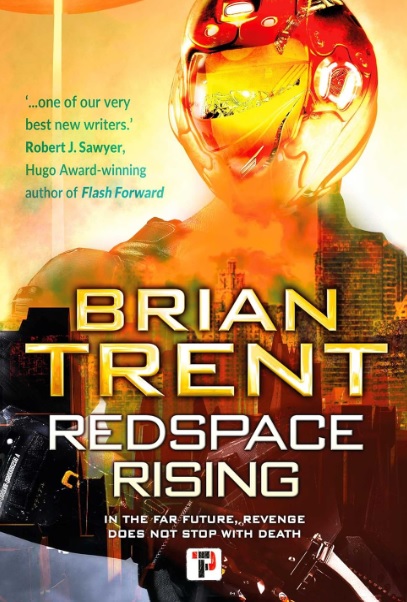Stars: 3 out of 5.
I have a hard time reviewing this book. On one hand, I loved the worldbuilding. It’s complex and interesting, and brutal, to be honest. In a way, it reminded me of Altered Carbon. On the other hand, I honestly couldn’t care less about the protagonist or the other characters. Hence my dilemma, so I will just rate it middle of the road, I think.
This book illustrates perfectly that the value of a human life goes down significantly when technology is advanced enough to achieve near immortality. Why care about the body if your consciousness is backed up on a regular basis, and you can be decanted into a new clone in a matter of days? It opens the door to great deeds of selflessness, but also to horrible abuse. Just thinking about the torture row on Phobos makes my blood boil. Imagine torture that can last forever, because every time you die, they just decant you into a different clone and start all over again.
On this one, I wish we would have had a chance to explore the theme of identity a bit more in this book. What happens if there are several versions of you running around at the same time? Who is the real one or the “prime”? What rights do the clones have? How do you decide whose memories and experiences merit a backup and whose don’t? Unfortunately, even though we have a character living in two bodies, that particular concern is never explored.
As I had mentioned, by biggest problem was that I couldn’t empathize with the protagonist. In many ways, Harris Alexander Pope is a blank slate. I understand that this was done on purpose, since even the character himself doesn’t know who he really is or what he wants, but it makes it hard for the reader to form an emotional connection. Since Harris doesn’t his own mind or even his motivation in most cases, it’s hard to decide if we should root for him or not. What does he want in life apart from meet up with his brother? Unknown. Why is he pursuing the Patriots so relentlessly? Unknown. Why does he always repeat the same speech word for word before he kill them? Un… no, wait, that is known, but that would be a big spoiler.
It doesn’t help that the supporting characters are rather unlikeable, apart maybe from Umera. And the bad people are so villainous they come across as caricatures. I mean what’s with the supposedly great general and strategist who finishes all his sentences with an exclamation point and loves to drone on and on and on… like he is giving a lecture? I couldn’t take him seriously even if I wanted to!
I also wasn’t satisfied with the ending. I mean, yes, it’s a win for humanity – they get a chance to expand beyond the solar system, but is it a win for Harris? I wouldn’t be so sure. He is still stuck in his hunt and destroy loop, and he honestly doesn’t have any dreams or desires aside from that.
PS: I received an advanced copy of this book via NetGalley in exchange for an honest review.

